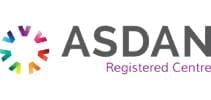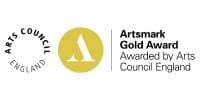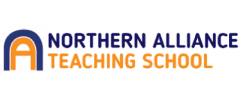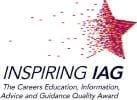- About Us
- Head’s Welcome
- Senior Leadership
- The Marple Hall Spirit
- Governing Body
- Our Policies
- OFSTED Information
- Prospectus
- Elements Resource Base
- School Week Timings from September 2023
- SOS
Our Community - Our Future
School Information Report
Marple Hall is an inclusive school. We believe every pupil is an individual and we are passionate about supporting and encouraging every young person we teach to reach their full potential not only academically but as engaged and responsible future members of society.
The Marple Hall Information Report describes how we identify and support pupils with Special Educational Needs and Disabilities.
The offer is outlined in the style of Frequently Asked Questions. We are always looking to improve the way we provide information about our school. If you have a question which this information does not answer please contact us.
Definition of Special Educational Needs
A child or young person has SEND if they have a learning difficulty which calls for special educational provision to be made for them. A child of compulsory school age or a young person has a learning difficulty or disability if they:
(a) Have a significantly greater difficulty in learning than the majority of others of the same age, or
(b) Have a disability which prevents or hinders them from making use of educational facilities of a kind generally provided for others of the same age in mainstream schools or mainstream post 16 institutions.
A child under compulsory school age has special educational needs if they fall within the definition at (a) or (b) above or would do so if special educational provision was not made for them.
Pupils will fall into one of the following four broad categories of need:
- Communication and interaction
- Cognition and learning
- Social, mental or emotional health
- Sensory and / or physical
How will the school know when a child or young person needs extra help?
We work closely with our local primary schools to ensure that we are aware of any additional support needs of students as they make the transition to Marple Hall.
Marple Hall students are tested in the first half term of Y7 reading Tests and CAT tests. We use the KS2 SATs data as well as the data from the testing done by us to identify students who are performing below the level of national expectation.
This data may inform further assessment by the school or in partnership with other professional bodies.
All departments closely monitor progress data on all students and those who are not making expected progress are identified as potentially requiring extra support.
Parents and class teachers can raise particular concerns about a young person with the SEND department. We will then as a starting point work closely with the class teacher and their department to identify and remove any barriers to learning. We will consult with outside agencies where appropriate to identify specific areas for support.
Who can I talk to about my child’s needs?
Parents and carers can contact the SENDCo at any time to discuss the needs of their child either by phone or email or we are happy to arrange to meet and discuss in person. Regular meetings for young people on the SEND register will be scheduled.
How does the school support a child with SEND?
A starting point for all pupils is the delivery of high-quality teaching.
We strive to ensure that all classrooms, resources and teaching styles are accessible to pupils with a wide range of support needs.
If a student is not making progress despite high quality teaching and appropriately differentiated resources and teaching styles a referral is made to the Learning Support Faculty and the school’s Well-being Team.
Tailored interventions and Learning Support Assistant support can then be offered to targeted pupils from school departments, the Learning Support department and the school’s Well-being Team.
Learning Support provides a staffed lunch and break club and pupils are welcome before and after school in the Learning Support area.
We have a highly skilled and dedicated team of Learning Support Assistants who work closely with all departments to provide targeted support in lessons.
We believe in rewarding students with SEND as much as possible to raise their self esteem and confidence and we have an Inclusion Programme to teach the school community about SEND and how to be supportive of those with SEND.
We believe that a close working relationship between pupils, parents/carers and outside agencies is key to supporting all children with additional needs.
How are the governors involved and what is their responsibility?
The governing body includes a governor with responsibility for SEND whose role is to provide challenge and hold the Headteacher and other senior leaders to account for improving the quality of teaching, pupils’ achievement and pupils’ behaviour and safety.
The governing body operates in such a way that statutory duties are met and priorities are approved.
The governing body ensures that the pupil premium and other resources are used to overcome barriers to learning, including reading, writing and mathematics.
The governor with responsibility for SEND holds regular meetings with the SENCo
How will the curriculum be matched to my child’s needs?
All students follow a broad and balanced curriculum. Should it be necessary, a reduced curriculum can be put in place to focus on fewer subjects. We offer GCSEs and vocational qualifications such as BTEC and also have strong links to college providers and other alternative education providers.
How can I work with the school to support my child’s learning?
Parents are encouraged to ensure that their child attends school every day and is punctual, to notify the school of all absences and appointments, to arrange all family holidays outside of term time and to ensure their child wears correct uniform and has a smart, clean appearance. Parents can also ensure their child has the correct equipment for every lesson and check and sign their school planner each week.
Parents are encouraged to attend parents’ evening and discussions about their child’s progress and support their child in completing homework by providing a calm work space at home. Parents should notify the school of any concerns or problems that may affect a child’s work. Parents are asked to support the school’s code of manners, honesty and hard work.
The school recognises that a close partnership between itself, parents/carers and students is vital to the success of our students. Parents are involved in the creation of plans which contain key information about their children’s support needs and are then shared with staff. Parents are invited to attend regular meetings about their child’s support and progress.
How does the school know how well my child is doing?
Students are closely monitored in all subject areas and three gradebooks are issued to parents each year. There is also one parent’s evening a year, one annual SEND review and there can be additional review meetings. Teachers, subject leaders, heads of year and pastoral staff regularly monitor the progress of all students and we welcome contact from parents at any time to discuss concerns.
What support will there be for my child’s overall wellbeing?
Students are placed in form groups and form tutors are the centre of pastoral care.
Each year group has a pastoral head and head of year who closely monitor their year groups overall wellbeing.
We have a School nurse, access to a Counselling service, a medical needs’ officer and a full-time Well-being Team.
How does the school manage the administering of medicines?
If a student needs to take medicine at school a letter from parents is required stating when it should be taken. Medicines are held securely by the medical needs officer. An exception to this is that Asthma inhalers may be carried and a spare may be left at Student Services for emergency use. All parents will be asked to fill in a medical form before students join us. If during the course of the year medical details change, it is very important that school is informed straight away.
What support is there for promoting positive behaviour, avoiding exclusions and increasing attendance?
The school operates a reward system which encourages not only academic success but also contributions to the daily life of the school and surrounding community. We seek to foster an ethos of positive behaviour and mutual respect between all staff and students as well as a love of learning.
The School has a large pastoral team which helps and supports students struggling to access lessons/curriculum due to behavioural issues. The team supports students to overcome these barriers to their learning and reintegrate them successfully into lessons via behaviour management and modification and restorative approaches where appropriate.
The school offers a range of interventions targeted at pupils who struggle to attend.
Should attendance become a concern we liaise closely with our Services for Young People worker who can offer support to families.
How will my child be able to contribute their views?
Students are welcome to speak to staff at any time to share their views.
The school holds regular Student voice activities and we have a student council where each form is represented.
Regular SEN review meetings are held and if students do not wish to or are unable to attend we gather written comment to contribute to the review.
Is there a range of services that the school can liaise with?
Marple Hall has close links with many outside agencies including:
- SENDIAS
- The Inclusion Service
- The Educational Psychology Service
- Child and Adult Mental Health Service
- Stockport Sensory Support Service
- The Autism Team
- Occupational Therapy Service
- Physiotherapy Service
- Virtual School
- Services for Young People
- Social Care
- Speech and Language Therapy Service.
How will my child be included in activities outside the classroom?
Marple Hall is an inclusive school. All our activities outside the classroom are open to all students. Support is put in place if a young person requires it to access all of our activities which take place outside the classroom.
How accessible is the school environment?
Marple Hall is a large school. The school is a school designated for use by pupils with wheelchairs and all areas of the curriculum are accessible through adjusting timetables and rooming to ensure that students can access all lessons. Should a student with additional requirements wish to join the school we will ensure that any adaptations are in place for when they join us. These may include adaptations such as colour resources, IPADS, different passes e.g. early exit pass, equipment adaptations.
How will the school prepare my child for joining the school and transferring to a new school?
We have strong links to local primary schools. We offer a taster day extra visits for more vulnerable students and we are more than happy to arrange extra visits if required. We work closely with a range of outside agencies to tailor a transition package where necessary.
We have strong links to all local FE colleges and offer support for transition including extra visits to colleges and guest speakers from the colleges. We maintain a close dialogue with FE college Learning support Departments as well as Services for Young People to ensure any relevant support information is passed on at time of transition.
How are the school’s resources allocated and matched to the needs of a child with SEND?
All students’ progress, behaviour and wellbeing are regularly monitored throughout their time with us. The greater the students need the more support we offer, utilising the ‘assess-plan-do-review model’ and ‘graduated approach’ outlined in the SEND Code of Practice. In the first instance we ensure that students are receiving high quality teaching and that all teaching styles and resources are accessible. If a student requires further support we can offer a range of interventions including time out of class with the Well-being Team or the Learning Support Area or Learning Support Assistants providing in-class support for a student or group of students. A log of this is kept on a provision map which is reviewed regularly. This support is offered short term in the first instance and impact measured. Outside agencies can then be contacted to offer further support if required.
How are decisions made about the type and level of support that my child will need?
Students with a lower level of additional support need will have these met by the class teacher. The class teacher will decide how best to do this. The decision to offer extra support over and above that which is provided in the classroom will be made in consultation with young person, parent/carer, teachers and the Learning Support Department. Once a decision has been made to offer additional support to a student over and above that provided by the class teacher the impact of the support will be reviewed and the level of future support decided.
How will I know if the provision has had an impact on my child’s development?
The school will monitor the impact of any intervention and support and review this with parents/carers. It will log all additional interventions on a provision map and review the impact regularly utilising the ‘assess-plan-do-review model’.
Who can I contact for further information?
|
|
nuala.burke@marplehall.stockport.sch.uk
|
|
|
Amy.worsley@marplehall.stockport.sch.uk
|
|
|
http://www.stockport.gov.uk/atozindex/sendreform/localoffer
|
If you feel that your child’s needs are not being met and wish to complain about the provision being made for your child, please follow the procedures laid out in the complaints area of the website located under the ‘About Us’ tab.
The full Information Report can also be found in PDF form below:
|
|
SEN Information Report
|
Our Community - Our Future
FIND US
Marple Hall SchoolHill Top Drive
Marple
Stockport SK6 6LB Headteacher: Mr Joe Barker
CONTACT US
Tel: 0161 427 7966Fax: 0161 426 0931
Email: info@marplehall.stockport.sch.uk
Safeguarding: safeguarding@marplehall.stockport.sch.uk Click the link to open our Twitter page @MarpleHall










